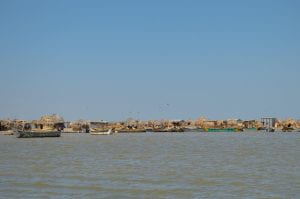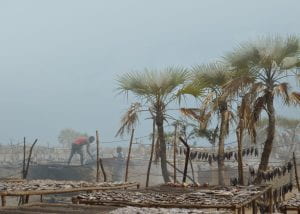The African Great Lakes are undergoing rapid environmental change, driven by climate
and anthropogenic impacts including rainfall-driven water level fluctuations, eutrophication,
habitat loss, and overexploitation of fish. Lake Turkana, the world’s largest permanent desert
lake, is the least studied of the African Great Lakes despite the important role of Lake Turkana’s
fisheries in food security and economic growth in Kenya. In remote, understudied regions like Lake Turkana, understanding the effects of fishing on fish life history is critical to sustainably managing the lake’s fish stocks. In collaboration with Kenya Marine & Fisheries Research Institute, we study the life history and trophic dynamics of Lake Turkana’s fish using isotopic and demographic data from contemporary and deep time.

